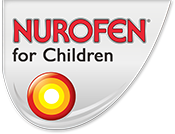The Pain of Irony: Summer Colds

The chances of catching a summer cold are only 1 in 4[1], compared to your chances of suffering from the cold virus in the winter months. However, a summer cold can make your child just as miserable – particularly if it interferes with their play time!
What is a summer cold?
A summer cold is similar to colds suffered at any other time, and the symptoms may also be the same, including:
- A blocked and runny nose with clear mucus at first changing to thicker green mucus as the cold progresses
- Sneezing, a cough and a sore throat
- You might also suffer from a fever, tiredness, muscle aches and headaches
What causes summer colds?
Summer colds are caused by the same 200 cold viruses[2] that can also cause the illness at any time during the year. However, there are some factors that may increase the chances of catching a cold in summer:
Air conditioning at home, in the car or at school could increase your child’s chances of catching a cold.
- Air conditioning typically dries the air it cools. This in turn may dry the mucus membranes in the nose that are designed to protect against illness. The cold virus also reproduces faster in a nose that has been cooled by fierce aircon.
Ironically, going on a summer holiday somewhere hot, on a long haul flight may also increase your chances of catching a summer cold.
- On a typical flight, you are packed in with 400 other people who are potential sources of cold viruses. Research shows that you are more likely to catch a cold flying to the USA long haul, than on a short flight to Europe.[3]
- When you arrive at your holiday destination, your child could come into contact with new cold viruses against which your child may not have immunity.
Stress is another factor that may increase the chances of catching a summer cold.
- When you suffer from stress, the immune system is weakened and the body is more susceptible to catching an illness, such as a cold.
- Holiday or test preparations could actually add to stress. For example, trying to finish studying, having their parent nag them to pack properly, etc. can leave the child feeling stressed.
How should a summer cold be treated?
To alleviate your child’s symptoms, simply treat the summer cold in exactly the same way as you would a winter cold:
- Consider giving your child a doctor-approved decongestant to help unblock the nose.
- Let the child drink plenty of fluids to help sooth a sore throat and keep the nasal mucous membranes moist
- A treatment, like ibuprofen, can help bring you some symptomatic relief
Nurofen For Children
Ibuprofen is the pain relief active constituent in Nurofen for Children.
- Nurofen for Children provides rapid and effective temporary relief – for up to 8 hours – from the major symptoms associated with a summer cold without causing your child to feel drowsy.
Nurofen For Children also contains phenylephrine, which works as a decongestant, and reduces swelling in the nose and sinuses.
[1] http://www.cf.ac.uk/biosi/subsites/cold/summercold.html
[2] http://www.nhs.uk/conditions/Cold-common/Pages/Introduction.aspx
